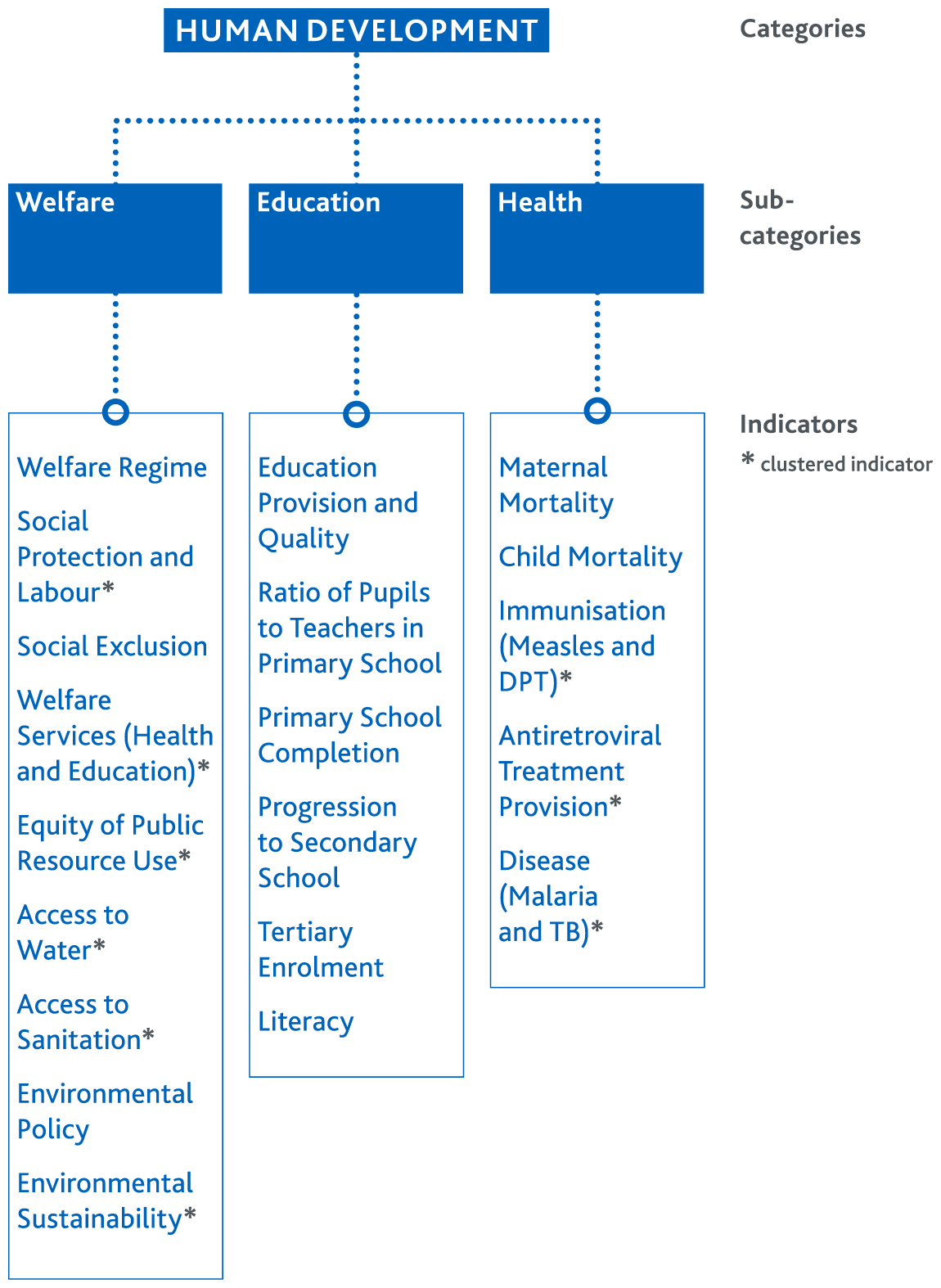A look into the Human Development category
23 September, 2013
The Human Development category measures three subcategories: Welfare, Education, and Health. These are Board Member Jay Naidoo’s thoughts on the importance of this category:
Human Development places citizens at the core of human well-being and enshrines the principle that every life has equal value. Yet in the context of growing new global apartheid we see a world in which the minority of global rich are divided from the overwhelming majority who suffer the hardships of poverty, hunger, joblessness and social inequality. There is ample empirical evidence that only socially inclusive, transparent and accountable governance is the key to sustainable economic growth. Yet governance remains a challenge in many parts of Africa mired by resource wars driven by predatory elites both on our continent and globally.
Africa is rich with resources underground but our people remain poor. Sub-Saharan Africa has one of the highest prevalence of hunger in the world. Many of our countries will struggle to achieve the Millennium Development Goals. Food and nutrition security are the flipside of the coin of human development. Life expectancy at birth, access to clean water and sanitation, quality education and health are fundamental human rights. Social protection welfare nets protect vulnerable and marginalised communities must underpin the societies we want to build. If African countries are to realise their long-term potential, social, economic and political governance has to be the core performance indicators. The Human Development indicators require civil society, governments, business, scientists and policy makers to unite around a programme of action that measures our performance and has consequences for non-delivery.



